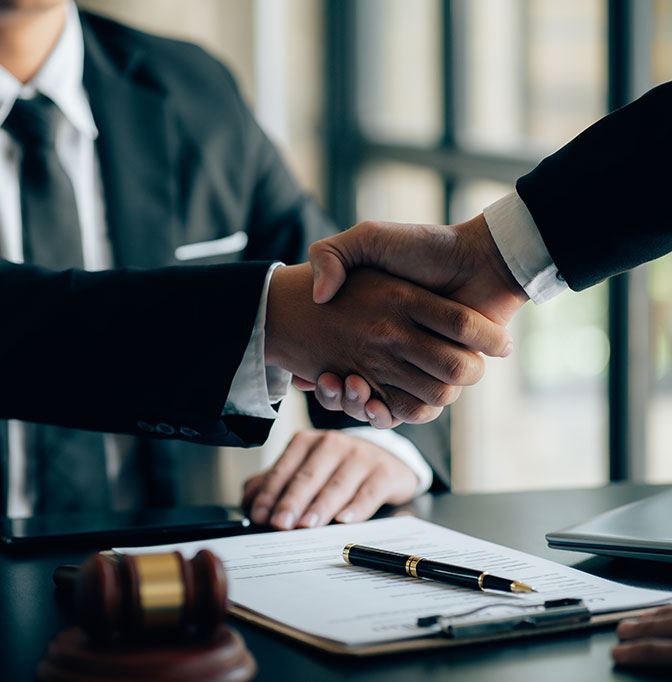
Pathways to Freedom If You Are Charged with a Crime
Understand What to Expect
Criminal Cases in Florida are Prosecuted by the Prosecutor. Prosecutors can be Local (State Attorney) or Federal (US Prosecutor). If you are charged with a crime, you will need an attorney. You may be assigned an attorney through the Public Defender’s office, or you can hire a private attorney.
As a safeguard of our liberty, the US Constitution guarantees that certain rights are respected by law enforcement. If those rights are violated, the evidence obtained by that violation can be suppressed. Regardless of whether your attorney is with the public defender or is a private attorney, there are several pathways they will follow to determine if the charges against you are based on evidence that should be excluded and may even be able to have the charges dropped or otherwise favorably resolve the case against you:
Requests for Information “Discovery”
Your attorney will request all available information through the prosecutor assigned to your case. The requested information is anything in the possession of the prosecutor or law enforcement that is relevant to your case. This can include reports of law enforcement related to arrest, investigation, evidence collection, fingerprint analysis, chain of custody, collected witness statements, and anything else that is relevant to your case such as body cam footage if it exists. The absence of or other deficiency of support for the major allegations of the prosecution could result in dismissal or a favorable resolution of your case.
Meetings with You & Relevant Others
You, the Client, must be consulted early and regularly to ensure that the case proceeds in keeping with the underlying facts and so you are kept apprised of progress. We believe that Clients in custody should be seen and consulted regularly (monthly if at all possible) and clients out of custody should be contacted (or met) whenever new information is made available.
Statements Under Oath “Depositions”
Your attorney will take statements under oath “depositions” to question the relevant witnesses and other persons to ensure that the allegations and assertions included in the police reports and other documents are consistent with their personal recollections. The list of persons to be deposed may be lengthy (including arresting officers, investigators, evidence technicians, eyewitnesses, alleged victims, and anyone else who may have relevant information). Depositions will usually continue in progressive stages as scheduling with witnesses permits and as new information is brought to light in the case (such as through requests for information, meetings with you, and prior depositions). A major inconsistency of foundational facts could result in dismissal or a favorable resolution of your case.
Suppression of Evidence
If your attorney finds relevant defects in the acquiring or holding of evidence that will be presented against you, they will file a motion to suppress it. The suppression of evidence is a very important tool for protecting your constitutional rights and can result in dismissing or otherwise resolving your case. Some reasons that might be used to suppress evidence can include:
Lack of Probable Cause for the Search
If the evidence was collected in a search where there was no probable cause, your attorney will move to suppress. The Bill of Rights to the US Constitution guarantees that people should be free from unwarranted search and seizure of their property. If a search is initiated wrongfully, any evidence obtained may be suppressed through a motion to the court. Suppression of the evidence of an illegal search is, in some instances, enough to have a case dismissed, or otherwise resolved favorably depending on how central the suppressed evidence was to proving the charges.
Traffic Stop
If evidence is obtained due to an impermissible traffic stop, your attorney will, likewise, move to suppress. Many times evidence obtained during a traffic stop is central to the charges so its suppression could result in dismissal or otherwise resolving the case favorably.
Out-of-Scope Searches/Seizures
If evidence is obtained through law enforcement exceeding the permissible scope of a search warrant or traffic stop, your attorney will also move to suppress which, as noted earlier, may be important in having charges dropped or resolving the case favorably.
Otherwise Unreliable Evidence
If your attorney finds a good reason why any evidence or testimony should not be used against you, they will move to have it suppressed.
Continuous Monitoring & Review
Your attorney will be following-up with the prosecutor for unmet information requests and will be evaluating received information and depositions for changes in the profile of the case that could result in a resolution.
Of course, this list is not inclusive of all possible pre-trial strategies but it represents some of the most relevant ones that could result in a dismissal or favorable resolution of your case. A good lawyer will always be weighing the case against all possible pathways that will yield a favorable result before trial while ensuring that your case is being positioned for trial.
Learn more about the services we offer by calling us at (850) 790-9059 or filling out our online contact form today. Hinson Law Offices is here to help.


WHAT MAKES US DIFFERENT
WHY CHOOSE Hinson Law Offices?
-
Clear CommunicationWe believe in empowering our clients by providing them with transparent communication every step of the way.
-
Direct AttentionWe take a hands-on approach and will even visit clients in jail on a monthly basis.
-
A Serious Trial Attorney
We show the prosecution that we mean business by aggressively preparing your case from the minute you hire us.
-
Experience On Your Side
Hinson Law Offices leverages more than 25 years of legal experience.